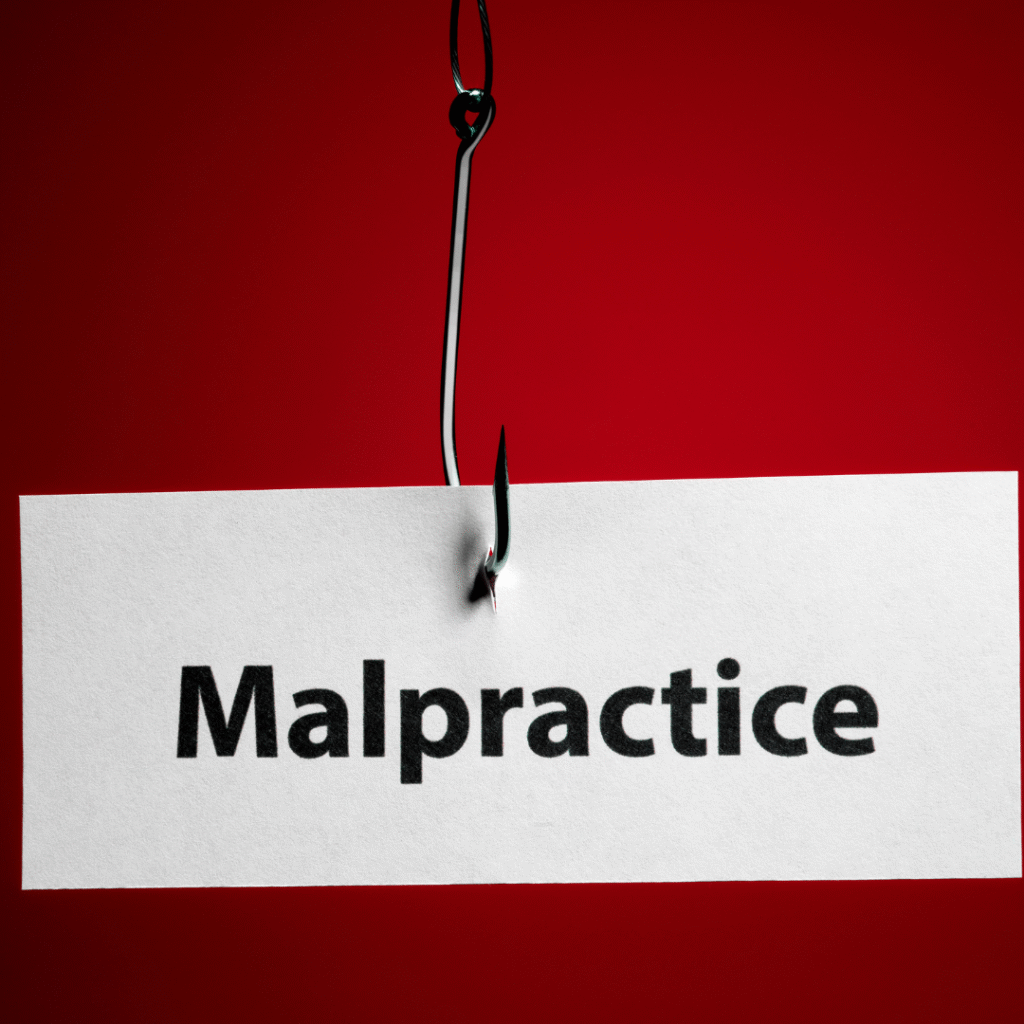Rockville Centre Business Owner Admits $600K Workers’ Compensation Fraud

November 12, 2025 | JacobiJournal.com — Compensation fraud came to light when a business owner from Rockville Centre, New York, pleaded guilty to committing workers’ compensation insurance fraud, underreporting payroll by $3.5 million and avoiding over $600,000 in premiums. The fraud was uncovered through audits conducted by the New York State Insurance Fund between 2019 and 2022, highlighting ongoing risks of payroll underreporting and the importance of thorough regulatory oversight. How the Fraud Occurred Investigators found that the owner deliberately underreported total payroll to reduce the amount owed for workers’ compensation premiums. By misrepresenting wages, the business artificially lowered its insurance costs, violating state insurance regulations and defrauding the insurance fund. Audits revealed the discrepancy between reported and actual payroll figures, exposing the scheme. What the Implications Are This case underscores the financial and legal risks of payroll misrepresentation. Businesses engaging in similar practices face: For insurers, accurate payroll reporting is critical for maintaining solvency and ensuring workers’ compensation coverage reflects actual employee risk exposure. Why It Matters Workers’ compensation fraud inflates costs for other businesses and can weaken the financial stability of state insurance funds. Regulatory audits and enforcement actions, like those conducted by the New York State Insurance Fund, serve as both deterrents and corrective measures. Employers and insurers are reminded to maintain robust reporting practices, perform internal audits, and stay vigilant against misclassification or underreporting of payroll. For full coverage of the Rockville Centre case, read more here. FAQs: Workers’ Compensation Fraud What is workers’ compensation fraud? Workers’ compensation fraud occurs when employers or employees intentionally misrepresent information—such as payroll, employee classification, or injury claims—to reduce insurance costs or obtain unentitled benefits. How did the Rockville Centre business owner commit fraud? The owner underreported $3.5 million in payroll between 2019 and 2022, which reduced the workers’ compensation premiums owed and defrauded the state insurance fund of over $600,000. What are the penalties for workers’ compensation fraud? Penalties can include criminal prosecution, fines, repayment of unpaid premiums, and in severe cases, imprisonment. Regulatory enforcement aims to protect insurance funds and deter future misconduct. How can employers prevent payroll-related workers’ compensation fraud? Employers can implement internal audits, maintain accurate payroll records, classify employees correctly, and ensure compliance with state and federal insurance regulations to minimize fraud risk. Why does payroll underreporting matter to insurers? Underreporting distorts risk assessment, leads to financial losses for insurance funds, and unfairly increases premiums for other compliant businesses. Accurate reporting ensures fair pricing and program sustainability. For ongoing coverage of workers’ compensation fraud, regulatory enforcement, and key legal developments affecting businesses and insurers, visit JacobiJournal.com. 🔎 Read More from JacobiJournal.com:
Decade-Old Car Crash Reopened as $3 Million Insurance Fraud

October 29, 2025 | JacobiJournal.com – Gujarat insurance fraud investigators have reopened a decade-old fatal car crash after uncovering what authorities describe as a ₹25 crore (≈ $3 million USD) insurance scam. Officials say the case, centered in Gujarat, exposes a coordinated effort to falsify accident reports and life-insurance records. Crash Reclassified After Forensic Review New forensic analysis and witness testimony revealed that the deceased businessman—long assumed to have been the driver—was actually a passenger. Officials say the original accident report was falsified to disguise who was at the wheel, enabling relatives and associates to file a lucrative life-insurance claim. Investigators noted that this finding could be a turning point in the Gujarat insurance fraud case, exposing how falsified crash records and fake IDs fueled one of the state’s largest insurance scams in recent years. Fabricated Evidence, Coordinated Cover-Up According to state police, multiple individuals collaborated to alter medical records, accident diagrams, and identification documents. Investigators are reviewing whether insurance intermediaries or local officials knowingly validated the false claim. High-Value Policy Triggered Decade-Long Deception The ₹25 crore policy was issued through a private insurer in 2015, and payout occurred within months of the crash. Authorities believe proceeds were laundered through shell entities and layered bank accounts to obscure their source. Broader Impact on Fraud Detection Systems Analysts note that the case highlights persistent weaknesses in India’s death-verification process and the limitations of paper-based insurance documentation. Anti-fraud experts are urging insurers to integrate centralized digital claims-tracking systems. “Delayed detection remains a core vulnerability—especially where medical, police, and insurer databases operate in silos,” said a Mumbai-based insurance-risk consultant. Regulatory Response Expected The Insurance Regulatory and Development Authority of India (IRDAI) has requested a full audit of similar high-value payouts from the same insurer. Future reforms may require mandatory biometric verification for all fatal-claim disbursements. For continuing updates on India’s insurance-fraud investigations, visit The Times of India’s Insurance Section. FAQs: Gujarat Insurance Fraud Case Why was the Gujarat insurance fraud car crash case reopened? Investigators discovered new forensic evidence indicating the deceased was a passenger, not the driver, which invalidated the original claim narrative. How much money was allegedly defrauded? Authorities estimate the fraudulent life-insurance payout totaled approximately ₹25 crore (about $3 million USD). Who is leading the current investigation? The Gujarat Police Economic Offences Wing (EOW) is coordinating with the Insurance Regulatory and Development Authority of India (IRDAI). How does this case affect future insurance claims in India? It underscores the need for digital verification, biometric claimant authentication, and integrated fraud-detection systems among insurers. Stay informed and subscribe to JacobiJournal.com for ongoing investigative coverage of global insurance-fraud cases. 🔎 Read More from JacobiJournal.com:
Eleventh Circuit Clarifies Insurer’s Duty to Defend in Malpractice Coverage Case

October 15, 2025 | JacobiJournal.com — The Eleventh Circuit Court of Appeals has reaffirmed that insurers cannot easily escape their duty to defend when a malpractice complaint raises allegations potentially covered by professional liability insurance. The court’s decision underscores how narrowly exclusions must be applied when determining an insurer’s defense obligations toward attorneys and law firms. Court Rejects Overbroad Use of Policy Exclusions In the dispute, an insurer sought to avoid defending an attorney accused of mishandling a client matter, citing conflict-of-interest and misappropriation exclusions. The appellate panel disagreed, holding that such exclusions did not clearly eliminate coverage for the allegations presented. The judges emphasized that the duty to defend is broader than the duty to indemnify, meaning insurers must step in as long as any claim in the complaint may fall within coverage. This decision aligns with the Eleventh Circuit’s consistent stance favoring insureds in ambiguous defense scenarios. Implications for Professional Liability Coverage Legal analysts note that the ruling strengthens the protection afforded to lawyers under professional liability policies, particularly in jurisdictions governed by Eleventh Circuit precedent. The case signals to insurers that attempts to rely on vaguely worded exclusions may fail where the underlying facts could still support coverage. “This opinion is another reminder that insurers carry a heavy burden when attempting to disclaim their defense obligations,” one coverage attorney explained. “Courts are increasingly unwilling to let carriers off the hook based on speculative exclusions.” Broader Context for Insurers and Law Firms The Eleventh Circuit’s decision follows a growing national trend requiring insurers to honor defense commitments when policy wording is unclear. For law firms, the ruling highlights the importance of reviewing policy terms, especially exclusions tied to conflicts or client fund handling. Industry observers predict that this case will be cited in upcoming disputes involving the scope of an insurer’s duty to defend under professional liability and errors-and-omissions policies. For a full summary of recent federal coverage cases, visit the Insurance Law Center at Cornell Law School. FAQs: Eleventh Circuit Insurer Duty to Defend Ruling 2025 What did the Eleventh Circuit decide about insurer obligations? The court ruled that the insurer must defend the attorney and firm in a malpractice lawsuit because the claims could fall within the scope of the policy. Why did the insurer try to deny coverage? It cited exclusions related to conflict of interest and misappropriation, but the court found these did not clearly apply to all alleged conduct. How does this affect other law firms with similar policies? It sets a strong precedent favoring insureds by confirming that any doubt in coverage should be resolved in favor of providing a defense. Where can readers learn more about insurer defense duties? Readers can explore coverage principles at Cornell Law’s Insurance Law Center. Stay informed on the latest insurer defense rulings — subscribe to JacobiJournal.com for weekly coverage of federal appellate decisions. 🔎 Read More from JacobiJournal.com:
Eighth Circuit Affirms $27M Insurance Win in Carcinogenic Soot Case

September 8, 2025 | JacobiJournal.com — A divided Eighth Circuit panel has upheld a $27 million jury award against Travelers Insurance in favor of a Missouri apartment complex, marking a significant precedent in insurance litigation tied to environmental health hazards. The ruling hinged on expert testimony that carcinogenic soot was present, creating liability for the insurer. Federal Court Makes ‘Erie Guess’ Because Missouri courts had not yet addressed this specific insurance dispute, the Eighth Circuit made an “Erie guess” — a legal method used by federal courts to predict how a state’s highest court would rule in the absence of controlling precedent. In doing so, the appellate judges sided with the apartment complex, affirming the jury’s substantial award. Expert Testimony Central to the Case Travelers had argued that the apartment complex failed to prove damages tied to soot exposure. However, the panel determined that expert testimony was sufficient to establish that carcinogenic particles were present, making the insurer liable for coverage. This decision underscores the growing importance of scientific and environmental evidence in large-scale insurance disputes. Broader Implications for Insurers The ruling may have far-reaching consequences for insurers facing claims tied to fire residue, toxic substances, and environmental contamination. Legal analysts note that the Eighth Circuit’s affirmation demonstrates courts’ willingness to rely on expert testimony even in the absence of clear state-level precedent. This could encourage more property owners to pursue claims when insurers attempt to deny coverage for environmental hazards. For official court documentation, readers can access the Eighth Circuit Court of Appeals opinions on the U.S. Courts website. FAQs: Eighth Circuit Insurance Ruling What was the dispute about? An apartment complex claimed its property was contaminated by carcinogenic soot, leading to a jury award of $27 million against Travelers Insurance. Why is the “Erie guess” significant? It shows how federal courts predict state law when no precedent exists, setting an influential example in insurance litigation. What role did expert testimony play? The court found expert testimony about the presence of carcinogenic soot sufficient to support the jury’s verdict, despite the insurer’s objections. How does this ruling affect future insurance cases? It strengthens the role of scientific evidence in coverage disputes and signals that courts may favor policyholders when insurers challenge environmental damage claims. Stay ahead on legal accountability and insurance litigation by subscribing to JacobiJournal.com. 🔎 Read More from JacobiJournal.com:
Appeals Court Revives Insurance Bad Faith Case in $7.5M Verdict

August 27, 2025 | JacobiJournal.com – The 1st U.S. Circuit Court of Appeals has revived a Massachusetts case alleging insurance bad faith after a food service distributor’s insurer failed to propose a fair settlement. The ruling stems from plaintiff Paula Appleton’s $7.5 million jury verdict following a collision with a company truck. Court records revealed that internal reports from AIG Claims, on behalf of National Union Fire Insurance, estimated damages between $6.5 million and $8.9 million more than a year before trial. Despite these assessments, the insurer refused to raise its $2.65 million offer. Court’s Reasoning on Insurance Bad Faith The appeals court held that under Massachusetts law, insurers must make good-faith settlement efforts when damages are “reasonably clear.” The refusal to increase an offer in line with internal evaluations can constitute insurance bad faith, even if the final amount is disputed. The decision reinforces that insurers who disregard their own evidence of liability and damages risk exposure to significant legal consequences. Broader Implications for Policyholders This ruling underscores the legal obligation of insurers to protect policyholders by pursuing fair settlement practices. For victims, it highlights the importance of challenging settlement delays or undervaluation, particularly in cases involving catastrophic injuries. For comprehensive insight into what constitutes bad faith in Massachusetts and how the law protects policyholders, check out this excellent breakdown in the Boston Bar Journal on enforcing the implied covenant of good faith under G.L. Chapter 176D(9)(f). FAQs: Insurance Bad Faith Case Details What does insurance bad faith mean in Massachusetts law? Insurance bad faith occurs when an insurer fails to make a fair settlement offer even when damages and liability are reasonably clear. Why did the appeals court revive the case? The court ruled the insurer may have acted in bad faith by refusing to increase its offer despite internal reports showing damages were far higher. How much was the original verdict tied to this insurance bad faith dispute? The plaintiff, Paula Appleton, secured a $7.5 million jury verdict in state court before the appeal. What are the broader implications of this ruling? The decision highlights insurers’ legal duty to protect policyholders and ensure good-faith settlement practices. Stay informed on insurance litigation and fraud cases. Subscribe to JacobiJournal.com for the latest legal news and expert analysis. 🔎 Read More from JacobiJournal.com:
Burr & Forman Faces Malpractice Claims in $8M Healthcare Fraud Case

August 19, 2025 | JacobiJournal.com – A Georgia federal judge has refused to dismiss malpractice and fiduciary duty claims against Burr & Forman LLP, keeping the law firm in the middle of a high-profile lawsuit tied to an alleged multimillion-dollar healthcare fraud scheme involving The Aliera Companies. The ruling highlights how legal professionals can become entangled in healthcare fraud disputes when their actions, advice, or oversight are alleged to have supported questionable financial practices. At the center of the case are allegations that Burr & Forman and its partner, Jennifer Moseley, played a role in structuring business transactions that enabled Aliera’s founders to divert millions from healthcare sharing ministries. These ministries, often marketed as faith-based alternatives to traditional insurance, have drawn increasing regulatory scrutiny due to fraud risks and misuse. By leaving the malpractice and fiduciary duty claims intact, the court signaled that the intersection of law firms and healthcare fraud will continue to be a closely watched area of litigation. Judge Denies Dismissal of Key Claims U.S. District Judge J.P. Boulee ruled that Burr & Forman and its partner, Jennifer Moseley, must largely face claims brought by bankruptcy trustees overseeing the fallout of Aliera’s collapse. The trustees allege that the firm assisted Aliera’s founders, Tim Moses and Shelley Steele, in siphoning millions from the company through improper transactions. Judge Boulee rejected the defense that Burr & Forman merely completed tasks within its professional engagement, emphasizing that attorneys must perform with “ordinary care, skill, and diligence.” He also noted that breach of fiduciary duty was explicitly included in the firm’s engagement letter, making dismissal inappropriate. Limited Dismissal on Aiding and Abetting Counts The court dismissed only two counts alleging that Burr & Forman aided and abetted a fiduciary breach. Georgia law restricts aiding and abetting claims to third parties, and the court found that Burr & Forman was not a legal “stranger” to the arrangement. Allegations of Fraud Through Healthcare Sharing Ministries The trustees’ lawsuit asserts that Aliera used healthcare sharing ministries (HCSMs) to sell plans that charged excessive fees while denying promised health coverage. One such partnership with Anabaptist Healthshare allegedly allowed Aliera and its subsidiary Unity Healthshare Inc. to collect millions each month. Burr & Forman and Moseley are accused of helping the founders establish shell companies, draft questionable promissory notes, and facilitate transfers that funneled over $8 million out of the business. According to the trustees, these transfers also went toward paying Moses’ restitution obligations from a prior fraud conviction. Broader Fallout and Pending Criminal Charges Judge Boulee also dismissed the firm’s argument that liability should be limited to events occurring before bankruptcy. The court noted that regulatory actions, class action lawsuits, and significant financial penalties began almost immediately after Aliera launched operations. Meanwhile, Moses and Steele face separate criminal charges in Texas for allegedly operating an unauthorized insurance business, with proceedings still ongoing. Legal Representation The trustees are represented by Sirianni Youtz Spoonemore Hamburger PLLC, Terry D. Jackson PC, and Mehri & Skalet PLLC. Burr & Forman is represented by King & Spalding LLP. For readers seeking a deeper understanding of fiduciary duties in legal malpractice claims, visit the American Bar Association’s guidance on fiduciary obligations. FAQs: Burr & Forman Healthcare Fraud Case What is the Burr & Forman healthcare fraud case about? The case involves allegations that Burr & Forman LLP helped the founders of The Aliera Companies embezzle millions while misleading consumers through healthcare sharing ministries. Why did the judge allow malpractice and fiduciary duty claims to proceed? The judge ruled that attorneys must exercise professional care and diligence, and because fiduciary duties were part of Burr & Forman’s engagement, dismissal was not appropriate. What legal risks do law firms face in healthcare fraud cases? Law firms can face malpractice and fiduciary duty claims if they are found to have facilitated or ignored fraudulent activities while providing legal services. How does healthcare fraud impact consumers and the legal system? Healthcare fraud cases often leave consumers with unpaid medical bills, denied coverage, or unexpected expenses. For the legal system, these cases increase regulatory oversight, trigger class actions, and expand liability risks for professionals tied to the fraudulent schemes. Stay ahead of legal and financial news that shapes the future of compliance, litigation, and corporate accountability. Subscribe now to JacobiJournal.com for daily insights and expert analysis. 🔎 Read More from JacobiJournal.com:
DOJ Seeks $11M in Civil Forfeiture Over Miami DME Fraud Scheme

August 8, 2025 | JacobiJournal.com — The Department of Justice has filed a civil forfeiture complaint to recover nearly $11 million in alleged proceeds from durable medical equipment (DME) fraud involving two Miami-based clinics. Authorities claim that Vida Med Center LLC and Med-Union Medical Center fraudulently billed Medicare for over $33 million in medically unnecessary DME claims between 2020 and 2022. According to the DOJ, the clinics operated a kickback-driven scheme in which patients were prescribed braces and orthotic devices that were not medically necessary and often never delivered. These services were submitted as reimbursable to Medicare using falsified documentation and physician approvals. Civil Forfeiture Sought in DME Fraud Scheme Federal investigators tracked the fraudulent proceeds through multiple financial accounts and shell entities, allegedly used to obscure the origin of the funds. The civil forfeiture action, filed in the Southern District of Florida, aims to recover approximately $10.9 million in assets, including luxury vehicles and real estate tied to the scheme. This case is part of a broader initiative by the DOJ and the Medicare Fraud Strike Force to curb fraudulent billing in the durable medical equipment sector. Authorities say DME fraud schemes frequently exploit vulnerable Medicare beneficiaries and drive up public healthcare costs. Pattern of Abuse in DME Billing Both clinics have come under scrutiny for their roles in a growing pattern of DME fraud forfeiture actions emerging nationwide. The use of deceptive marketing, forged prescriptions, and aggressive billing tactics has led to increased oversight of DME suppliers and prescribing physicians. The DOJ emphasized that civil forfeiture serves as a powerful tool to disrupt financial incentives behind Medicare fraud without waiting for a criminal conviction. What’s Next? The civil action does not require criminal charges to proceed but may lead to future indictments if investigators uncover further evidence of conspiracy or wire fraud. Meanwhile, regulators are urging healthcare providers to tighten compliance protocols and ensure documentation aligns with Medicare requirements. The DOJ’s pursuit of assets in this case signals renewed focus on financial recovery alongside traditional enforcement methods. For more on healthcare fraud enforcement, visit the U.S. Department of Justice Health Care Fraud Unit. FAQs: What to Know About DME Fraud Forfeiture What is DME fraud forfeiture? DME fraud forfeiture refers to the government’s civil action to seize assets gained through fraudulent durable medical equipment billing, even without a criminal conviction. How much was billed in the Miami DME fraud case? The two clinics allegedly billed Medicare over $33 million in fraudulent DME claims, prompting a DOJ effort to recover $11 million in illicit proceeds. Why does the DOJ use civil forfeiture in healthcare fraud cases? Civil forfeiture allows the DOJ to quickly seize assets tied to fraud without awaiting a criminal trial, preserving funds for potential restitution and disrupting ongoing schemes. Never miss an update. Subscribe to JacobiJournal.com for weekly enforcement summaries, case insights, and legal analysis direct to your inbox. 🔎 Read More from JacobiJournal.com:
Bonita Man Pleads Guilty in $5.8M Medicare DME Fraud Scheme

July 16, 2025 | JacobiJournal.com – Federal prosecutors have announced that a Bonita, California resident has pleaded guilty to his role in a $5.8 million Medicare DME fraud scheme. The case highlights ongoing Department of Justice efforts to hold durable medical equipment (DME) providers accountable for fraudulent billing and illegal kickback arrangements. How the Scheme Worked According to court filings, the defendant operated two DME companies that submitted claims to Medicare for braces and medical devices that were not medically necessary—or never provided. He admitted to paying over $227,000 in kickbacks to patient recruiters in exchange for beneficiary referrals, bypassing proper physician oversight. The fraudulent billing resulted in Medicare reimbursing approximately $3.48 million, all of which is now subject to forfeiture and restitution. Federal Enforcement Continues The guilty plea is part of a broader federal crackdown on DME-related fraud schemes that exploit billing loopholes and ignore patient eligibility standards. Sentencing is scheduled for October 10, 2025, and the defendant faces up to five years in prison and a fine of $500,000. “Fraud schemes like these harm both taxpayers and vulnerable patients,” said federal prosecutors from the U.S. Attorney’s Office for the Southern District of California. “We remain committed to identifying and dismantling networks that seek to abuse Medicare for personal profit.” Read the full DOJ press release: Justice.gov. Compliance Warning for Providers This case serves as a serious compliance warning to DME suppliers across the country. It highlights how Medicare DME fraud continues to be aggressively pursued by federal investigators, especially when schemes involve false claims, kickbacks, or unlicensed brokers. Providers are strongly urged to audit their internal controls, including referral relationships, billing practices, and patient documentation protocols. Failure to verify the legitimacy of prescriptions, or working with unvetted third-party marketers, may expose suppliers to liability. Authorities stress that the use of shell entities, manipulated patient records, and forged medical documents are common patterns in fraudulent DME operations—and will trigger enforcement. Ensuring full alignment with Medicare’s billing and compliance standards is now more critical than ever as oversight efforts intensify. FAQs: About Medicare DME Fraud What is Medicare DME fraud? Medicare DME fraud involves billing the government for durable medical equipment that is not medically necessary, not provided, or obtained through illegal referrals. Why is the Bonita case significant? It demonstrates how DME providers can be prosecuted for even seemingly routine billing violations, especially when kickbacks and forged documents are involved. What are common red flags for Medicare DME fraud investigations? Suspicious billing patterns, high-volume referrals from non-physician sources, and missing documentation of medical necessity are key triggers for audits and enforcement actions. Subscribe to JacobiJournal.com for weekly updates on healthcare fraud, regulatory enforcement, and compliance trends impacting providers nationwide. 🔎 Read More from JacobiJournal.com:
Genetic Testing Scams: The New Face of Medicare Fraud

June 18, 2025 | JacobiJournal.com – Genetic testing scams are quickly becoming a major form of Medicare fraud, targeting seniors with misleading offers and unauthorized billing schemes. These scams usually begin with a cold call, a booth at a senior center, or even a misleading TV ad claiming to offer free DNA testing for cancer or other conditions. Once a patient provides their Medicare number, scammers bill the government for unnecessary or completely fake tests—costing taxpayers millions. Although these scams promise insight into personal health, they rarely provide any medical value. Instead, the goal is to exploit Medicare’s coverage of genetic testing. A Growing Threat to Seniors and Taxpayers The appeal of genetic insights makes this scam effective, particularly among vulnerable senior populations who are more likely to trust medical professionals or health-related offers. Fraudsters often employ aggressive marketing tactics and fake affiliations with Medicare or healthcare providers to establish trust and gain access to sensitive private information. Furthermore, these schemes often involve third-party labs and marketers who split profits from fraudulent claims, making detection even more challenging. This multi-layered setup allows scam operations to avoid early scrutiny while maximizing profit. Protecting the Public and Medicare Government agencies, including the Office of Inspector General and CMS, have issued warnings and are actively investigating such schemes. Still, public awareness is key. Patients should never share Medicare information with unfamiliar sources or agree to free tests without consulting their doctor. Ultimately, understanding how genetic testing scams work is the first step in stopping them. Clear regulations, routine audits, and public education will be crucial in protecting both patient trust and public funds. For more official information on Medicare-related scams, visit the Office of Inspector General (OIG) fraud alerts. FAQs: About Genetic Testing Scams How do genetic testing scams target Medicare patients? Genetic testing scams often begin with unsolicited calls, senior center booths, or deceptive ads offering free DNA tests. Scammers collect Medicare numbers to bill for unnecessary or fake tests, exploiting both seniors and the Medicare system. What risks do seniors face from genetic testing scams? Victims of genetic testing scams risk identity theft, compromised medical data, and contributing to Medicare fraud unknowingly. These scams often leave patients without any valuable health insights despite claims. How can Medicare beneficiaries avoid genetic testing scams? To avoid genetic testing scams, seniors should only undergo genetic testing recommended by their personal doctor. Medicare numbers should never be shared with unsolicited callers, marketers, or unfamiliar medical providers. Stay protected against healthcare fraud. Subscribe to JacobiJournal.com for ongoing updates on Medicare scams, fraud enforcement, and patient safety insights. 🔎 Read More from JacobiJournal.com:
Hospice Fraud and Mobile Job Scams: Identity Theft in Plain Sight

June 5, 2025 | JacobiJournal.com – Hospice fraud and mobile job scams have taken on new dimensions, particularly in healthcare and employment, where fraudulent actors are exploiting systemic vulnerabilities. Investigators have uncovered a disturbing trend: scammers are enrolling Medicare beneficiaries in hospice care without their knowledge, while fraudsters are targeting job seekers to steal personal information. Hospice Fraud: When Compassion Becomes a Cover Alarmingly, fraudsters are enrolling individuals, many of whom are not terminally ill, into hospice programs to generate false Medicare claims. In many cases, these schemes often involve identity theft, where scammers gain access to Medicare numbers through deceptive marketing, door-to-door pitches, or unsolicited calls. Once enrolled, victims often remain unaware until legitimate Medicare services are denied. This not only jeopardizes patient care but also defrauds government programs and taxpayers. Mobile Job Scams: The New Phishing Frontier Fraudsters now target job seekers through mobile-based job scams, posing as recruiters and sending convincing phishing emails.. These messages often include links that install malware like the AppLite Banker Trojan—designed to steal login credentials and sensitive information. What makes these attacks particularly dangerous is their sophistication. Fraudsters clone job websites and create professional-looking recruiter profiles to deceive and exploit their targets. What Legal and Compliance Teams Should Do The key to prevention lies in proactive vigilance and system-wide awareness. Here’s what experts recommend: Moreover, fraudulent hospice enrollment and mobile job scams are more than financial crimes—they erode public trust and endanger lives. With billions at stake, legal professionals, healthcare providers, and compliance officers must act as the first line of defense. FAQs: About Hospice Fraud, Job Scams, and Identity Theft What is hospice fraud and how does it happen? Hospice fraud involves enrolling people into Medicare-funded hospice care without their knowledge to submit false claims. How can job seekers avoid mobile job scams? Always verify recruiter emails, avoid clicking suspicious links, and never share sensitive information through text or messaging apps. Where can I report identity theft in healthcare or employment? Report healthcare fraud to Medicare.gov/fraud and employment-related scams to the FTC at IdentityTheft.gov. Stay ahead of rising threats like hospice fraud and job-based identity theft. Subscribe to JacobiJournal.com for weekly enforcement alerts, fraud case analysis, and compliance guidance tailored to healthcare and legal professionals. 🔎 Read More from JacobiJournal.com: